Find Help
More Items From Ergsy search
-

Bleeding from the bottom rectal bleeding
Relevance: 100%
-
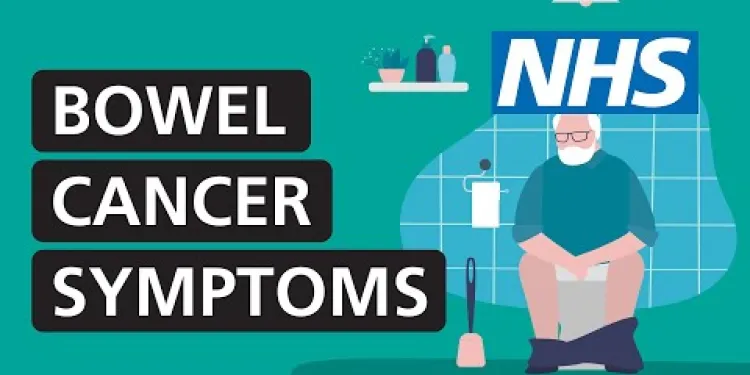
Bleeding from the bottom rectal bleeding
Relevance: 100%
-
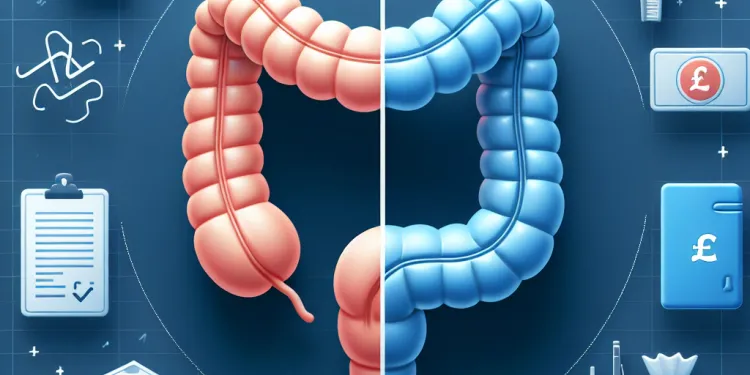
What is the difference between colon cancer and rectal cancer?
Relevance: 53%
-
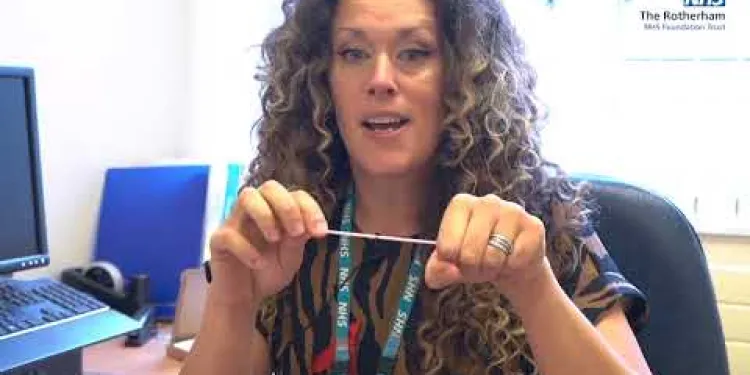
Rectal swab test for Gonorrhoea and Chlamydia
Relevance: 52%
-
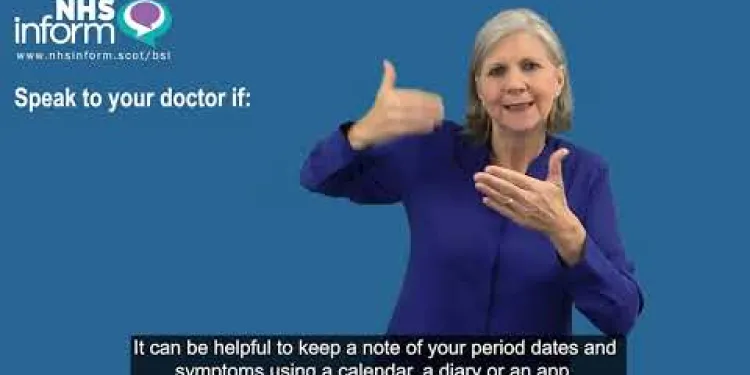
Heavy periods (heavy menstrual bleeding)
Relevance: 41%
-
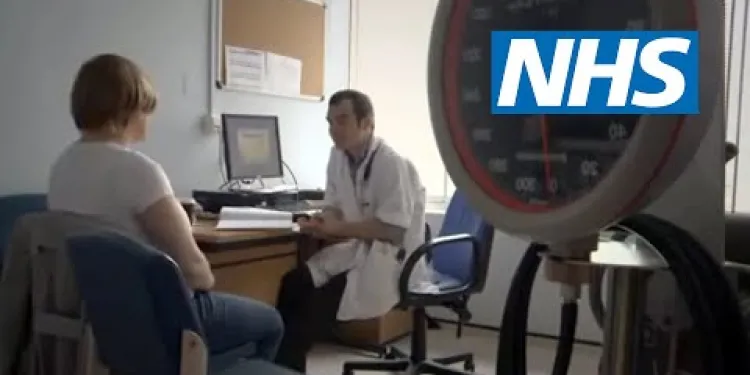
What should I do if I start bleeding during early pregnancy? | NHS
Relevance: 38%
-
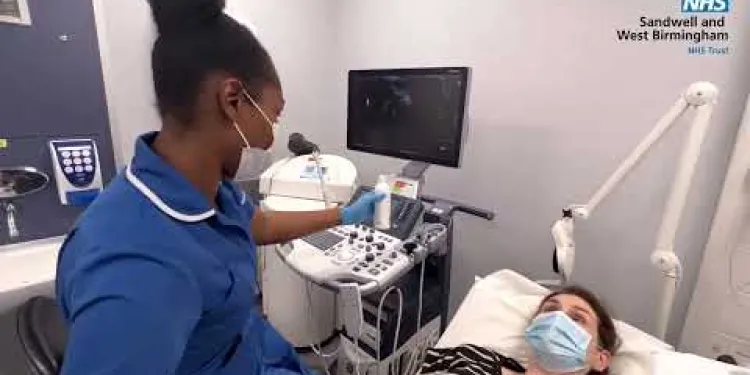
Post Menopausal Bleeding Clinic | A Guide to What Happens at An Appointment
Relevance: 37%
-
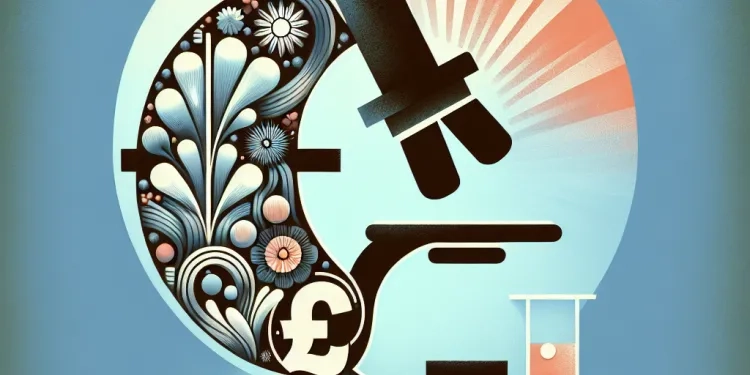
What should I do if I experience severe pain or bleeding after the test?
Relevance: 35%
-

What is colorectal cancer?
Relevance: 22%
-

Can gonorrhoea infect areas other than the genital organs?
Relevance: 21%
-
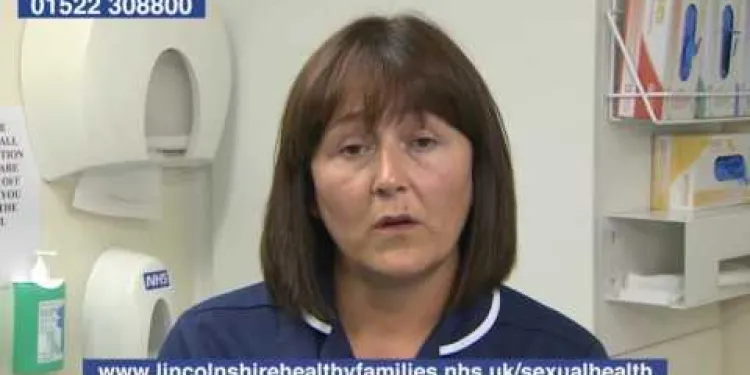
The symptoms of gonorrhoea
Relevance: 17%
-
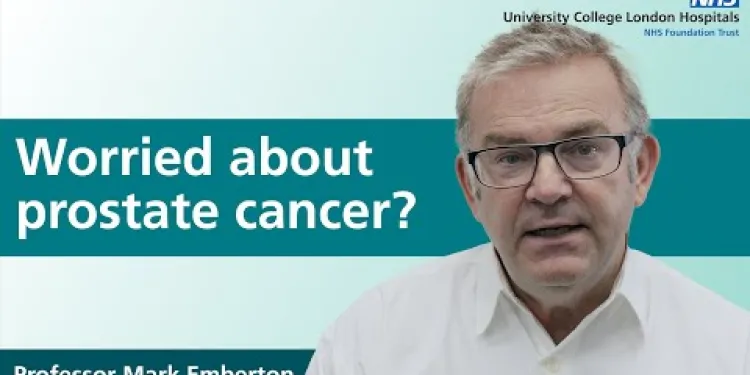
Prostate cancer diagnosis and tests
Relevance: 17%
-
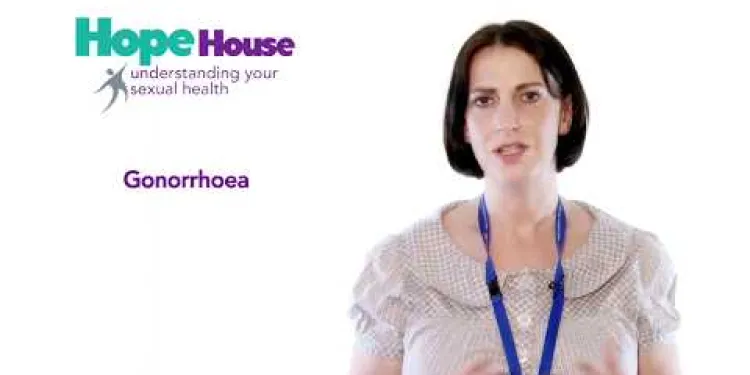
Understanding Your Sexual Health - Gonorrhoea
Relevance: 17%
-

Haemophilia
Relevance: 17%
-
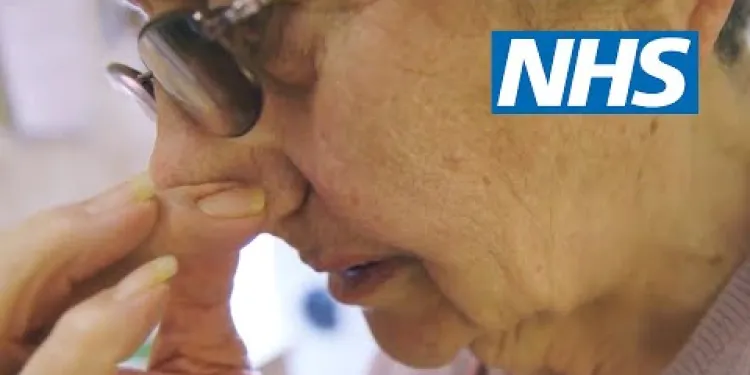
How to treat a nosebleed | NHS
Relevance: 16%
-
Should individuals with certain medical conditions avoid aspirin?
Relevance: 16%
-
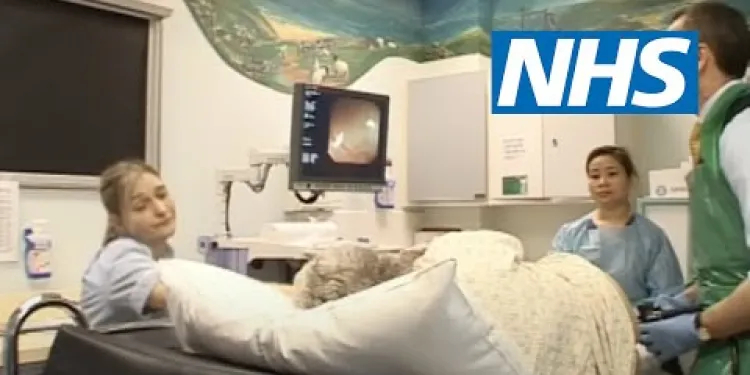
What happens during a colonoscopy? | NHS
Relevance: 16%
-

What are the side effects of Aspirin?
Relevance: 15%
-

What are the common symptoms of Crohn's disease?
Relevance: 15%
-
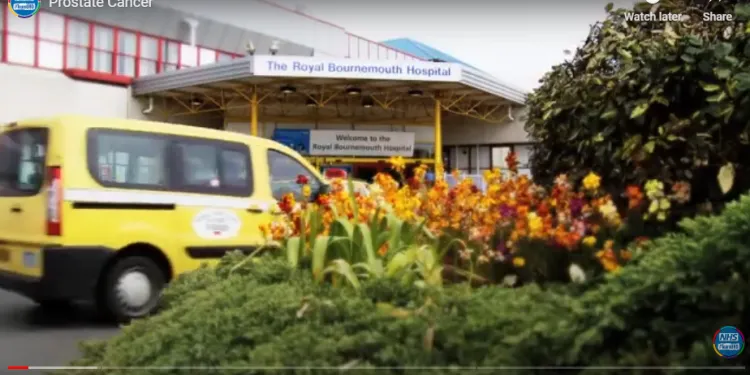
What is Prostate Cancer?
Relevance: 14%
-
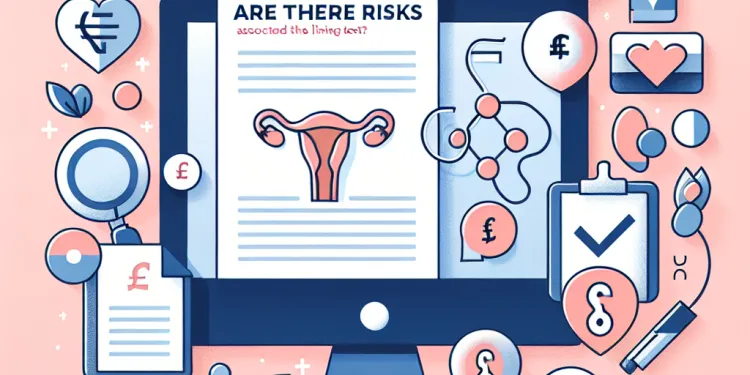
Are there any risks associated with the womb lining test?
Relevance: 14%
-
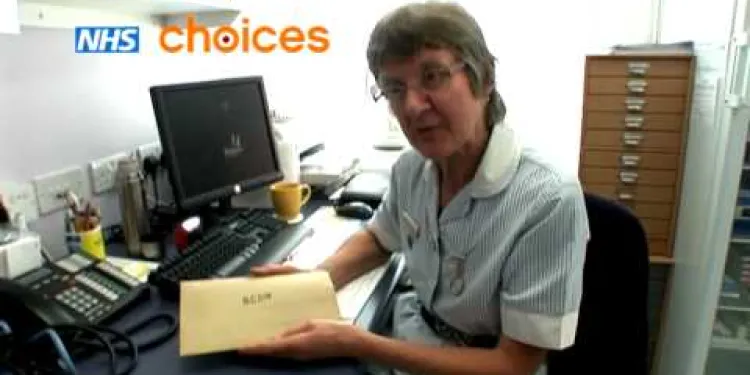
NHS - Chlamydia
Relevance: 14%
-
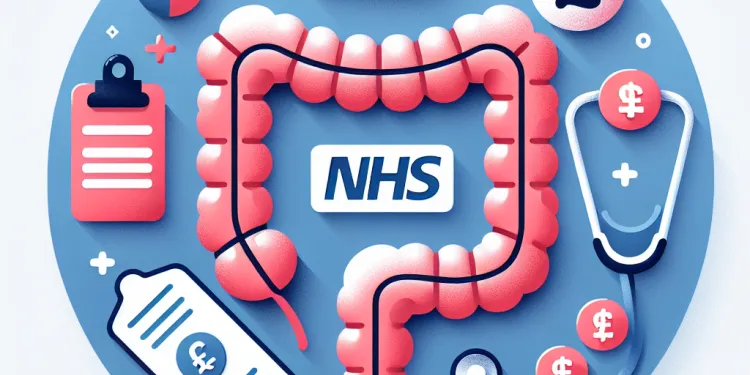
What treatment options are available for bowel cancer?
Relevance: 14%
-
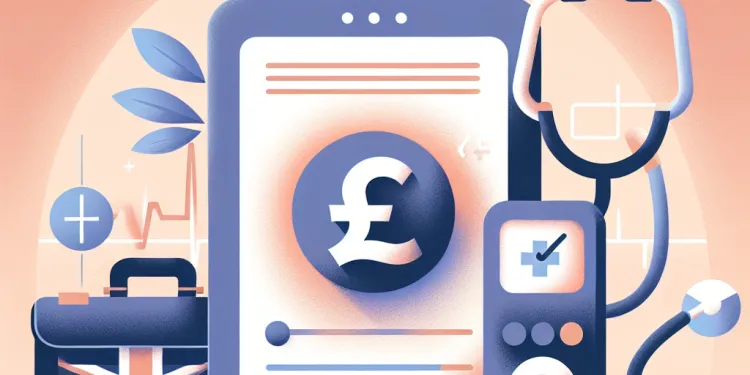
What happens after a womb lining test?
Relevance: 13%
-
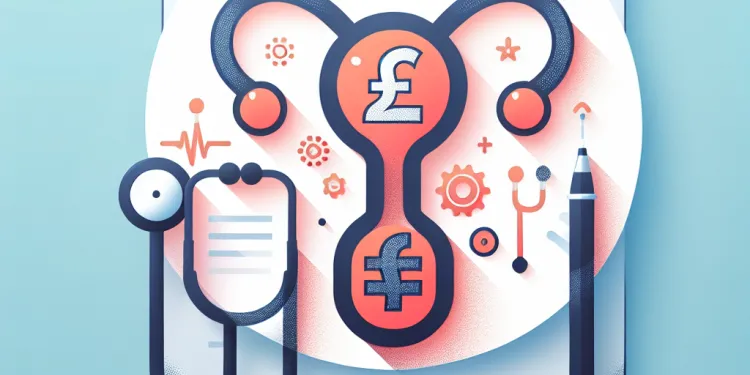
How is a womb lining test conducted?
Relevance: 13%
-
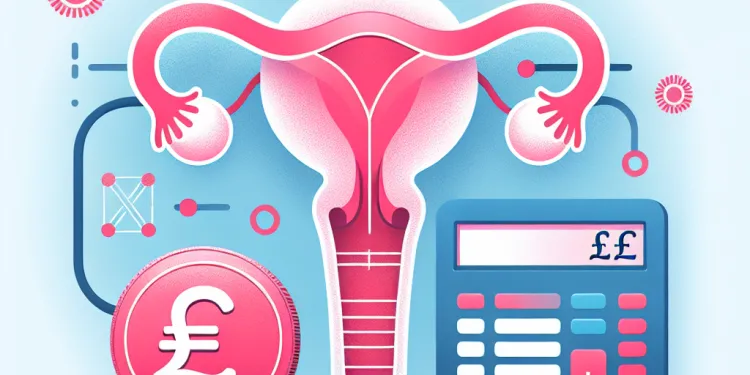
What is the Womb Lining test?
Relevance: 13%
-
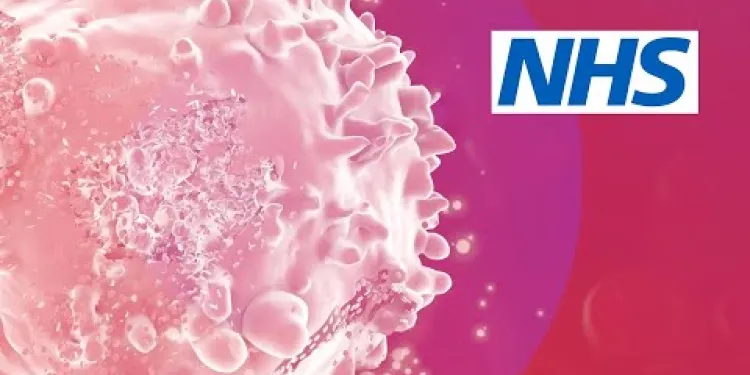
Leukaemia: What are the signs and symptoms? | NHS
Relevance: 13%
-

What are the symptoms of Marburg virus disease?
Relevance: 13%
-
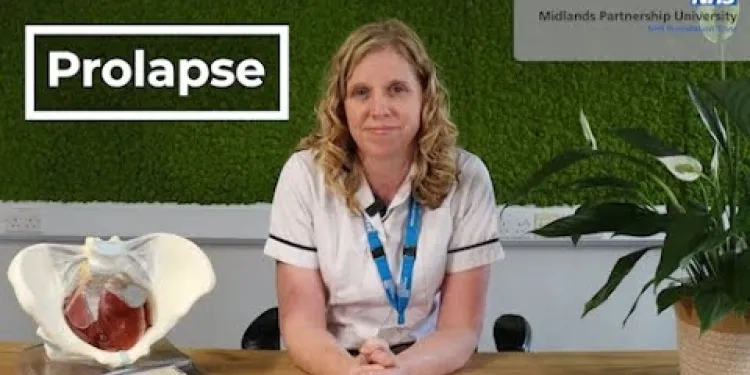
Prolapse Types and Tips
Relevance: 13%
-
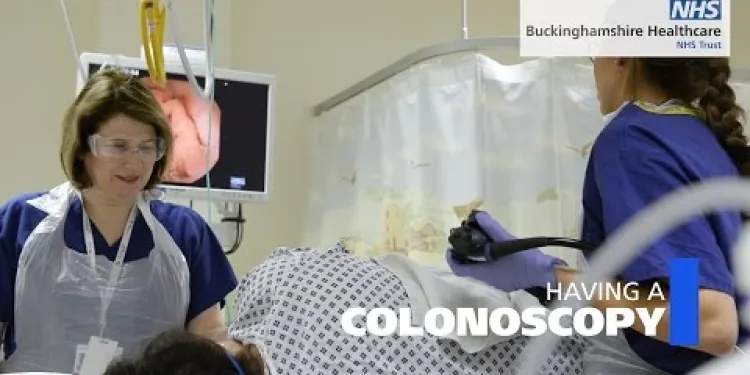
Having a colonoscopy in hospital - Patient Guide
Relevance: 12%
-

What dosage of aspirin is considered effective for cancer prevention?
Relevance: 12%
-

What topics are covered in a first aid course?
Relevance: 12%
-
Is aspirin more effective for certain age groups in preventing colorectal cancer?
Relevance: 12%
-
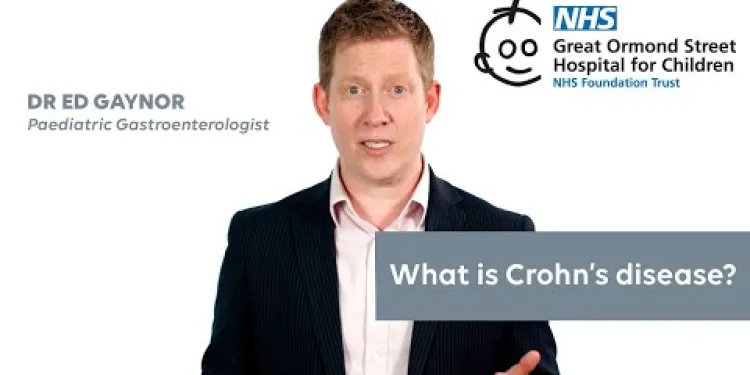
What is Crohn’s disease and how is it treated?
Relevance: 11%
-

What is Anaemia (iron deficiency)?
Relevance: 11%
-
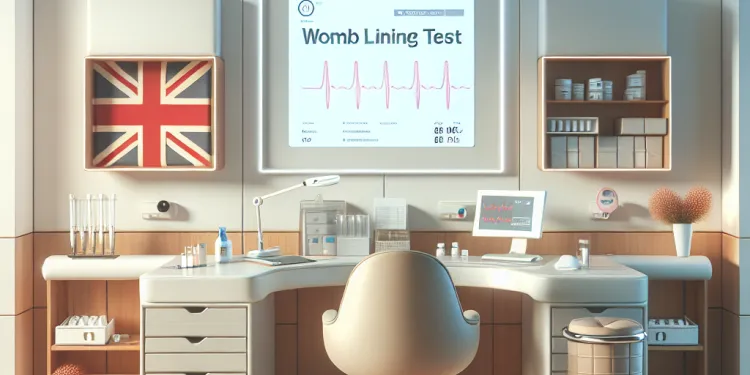
Is the womb lining test painful?
Relevance: 11%
-

Are anticoagulants effective in reducing stroke risk?
Relevance: 11%
-
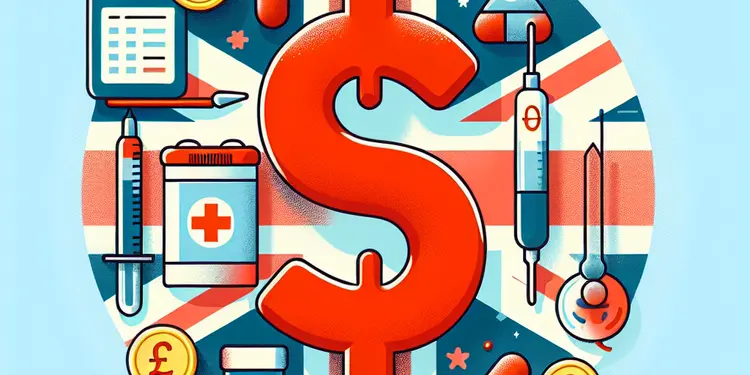
What is a fecal occult blood test?
Relevance: 11%
-

Are there risks associated with a womb lining test?
Relevance: 11%
-

What is the womb lining test?
Relevance: 11%
Understanding Rectal Bleeding
Rectal bleeding, commonly referred to as "bleeding from the bottom," can be a concerning symptom for many individuals. It's essential to understand its potential causes, the urgency for seeking medical advice, and how it is managed within the UK healthcare system.
Common Causes of Rectal Bleeding
Rectal bleeding may result from a variety of issues, including hemorrhoids, anal fissures, diverticular disease, and inflammatory bowel disease. Hemorrhoids, often known as piles, are swollen veins in the lower rectum or anus and are a prevalent cause of rectal bleeding. Anal fissures, small tears in the lining of the anus, can also lead to bleeding, usually characterized by sharp pain during bowel movements. More serious causes include colorectal polyps or cancer, which require prompt medical evaluation.
When to Seek Medical Advice
It is crucial to consult a GP if you notice any rectal bleeding, especially if it is accompanied by changes in bowel habits, weight loss, or persistent abdominal pain. While minor cases related to hemorrhoids or fissures might not be urgent, unexplained or severe bleeding warrants immediate medical attention. The National Institute for Health and Care Excellence (NICE) guidelines suggest that depending on symptoms, further investigations such as a colonoscopy may be necessary to rule out more serious conditions.
Diagnosis and Treatment Options
Upon visiting a GP, they might conduct a physical examination and recommend diagnostic tests like a stool test, sigmoidoscopy, or colonoscopy to determine the underlying cause. Treatment will depend on the diagnosis. For hemorrhoids and fissures, lifestyle changes like increased fiber intake and hydration, along with over-the-counter ointments or creams, may be advised. In some cases, surgical intervention could be necessary. More serious conditions like colorectal cancer might require specialized treatment pathways.
Preventive Measures and Lifestyle Changes
Adopting a healthy lifestyle can reduce the risk of conditions that cause rectal bleeding. A balanced diet rich in fruits, vegetables, and whole grains, combined with regular exercise, can help maintain bowel health. Additionally, staying hydrated and avoiding excessive strain during bowel movements can prevent hemorrhoids and fissures, significantly reducing the likelihood of rectal bleeding.
Conclusion
While rectal bleeding can be alarming, understanding its causes and the importance of timely medical evaluation can lead to effective management and treatment. The UK healthcare system provides resources and guidelines that ensure individuals can receive appropriate care based on their specific needs. If you experience any signs of rectal bleeding, reaching out to a healthcare professional promptly is vital for maintaining your health and peace of mind.
Understanding Rectal Bleeding
Rectal bleeding means bleeding from your bottom. It can be worrying. It is important to know what might cause it, when to see a doctor, and how it is treated in the UK.
Common Causes of Rectal Bleeding
There are different reasons for rectal bleeding. Some common causes are hemorrhoids, anal fissures, diverticular disease, and inflammatory bowel disease.
- Hemorrhoids, or piles, are swollen veins in your bottom. They can cause bleeding.
- Anal fissures are small cuts in the skin around your bottom. They can cause bleeding and pain when you poo.
- More serious causes might be polyps or cancer in the bowel. These need quick medical checks.
When to Seek Medical Advice
It is very important to see a doctor if you notice bleeding from your bottom. This is even more important if you have changes in your toilet habits, lose weight, or have ongoing tummy pain.
If the bleeding is not serious, like with hemorrhoids or fissures, it might not be urgent. But if it is a lot or unexplained, see a doctor quickly. Doctors might do tests like a colonoscopy to check for serious problems.
Diagnosis and Treatment Options
When you see a doctor, they might do an examination and some tests to find out why you are bleeding. They might check your poo or look inside your bowel with a special camera.
For hemorrhoids and fissures, doctors might suggest lifestyle changes. This can be eating more fiber, drinking more water, and using special creams. Sometimes surgery might be needed.
More serious problems, like bowel cancer, need special treatments.
Preventive Measures and Lifestyle Changes
You can do things to help avoid rectal bleeding. Eating healthy foods like fruits, vegetables, and whole grains is good. Exercising regularly helps too. Drinking enough water and not straining when you poo can stop hemorrhoids and fissures.
Conclusion
Bleeding from your bottom can be scary. But knowing what causes it and when to see a doctor is helpful. The UK has good healthcare to help you get the right treatment.
If you have bleeding from your bottom, talk to a doctor quickly. This helps you stay healthy and not worry.
Frequently Asked Questions
What are the common causes of rectal bleeding?
Common causes include hemorrhoids, anal fissures, diverticular disease, polyps, and inflammatory bowel diseases such as Crohn's disease and ulcerative colitis.
When should I see a doctor about rectal bleeding?
You should see a doctor if the bleeding is heavy, recurrent, or accompanied by symptoms like significant pain, weight loss, or changes in bowel habits.
Can rectal bleeding be a sign of cancer?
Yes, rectal bleeding can be a sign of colorectal cancer, but it is also associated with many other less serious conditions. It's important to have it evaluated by a healthcare professional.
How is the cause of rectal bleeding diagnosed?
Diagnosis may involve a physical examination, blood tests, stool tests, and endoscopic procedures like a colonoscopy or sigmoidoscopy.
What treatments are available for rectal bleeding?
Treatment depends on the cause and may include lifestyle changes, medications, or surgery. For hemorrhoids, options include topical treatments, banding, or surgical removal.
Are there any home remedies for rectal bleeding?
For minor bleeding from hemorrhoids, increasing fibre intake, staying hydrated, and using over-the-counter creams may help. Always consult with a doctor for persistent issues.
Can diet affect rectal bleeding?
Yes, a diet low in fibre can lead to constipation and increase straining, exacerbating conditions like hemorrhoids or fissures. A high-fibre diet can help reduce symptoms.
Is rectal bleeding in children serious?
While often caused by minor issues like anal fissures, rectal bleeding in children should always be assessed by a doctor to rule out more serious conditions.
What should I do if I notice rectal bleeding?
Monitor the amount and frequency of bleeding. If it is mild and infrequent, you may try dietary changes. Consult a doctor if the bleeding is heavy or persistent.
How common is rectal bleeding?
Rectal bleeding is relatively common and often not serious, but it's important to determine the underlying cause.
Can stress cause rectal bleeding?
Stress itself doesn't cause rectal bleeding, but it can exacerbate conditions like irritable bowel syndrome, which may lead to symptoms affecting bowel habits.
What are the signs that rectal bleeding needs urgent attention?
Seek urgent care if you experience heavy bleeding, dizziness, fainting, or severe abdominal pain alongside the bleeding.
How does exercise impact rectal bleeding?
Regular exercise can help prevent constipation and promote healthy bowel function, potentially reducing symptoms of rectal bleeding.
Can rectal bleeding be prevented?
While it can't always be prevented, maintaining a high-fibre diet, staying hydrated, and regular exercise can help reduce the risk of the conditions that cause it.
Is it safe to use over-the-counter treatments for rectal bleeding?
While over-the-counter treatments may provide relief for hemorrhoids, it's important to speak with a healthcare provider before starting any treatment to ensure it's appropriate for your condition.
Why might someone have bleeding from their bottom?
Bleeding from the bottom can be caused by many things. Here are some common reasons:
- Constipation: This means you find it hard to poop. Pushing too hard can cause bleeding.
- Hemorrhoids: These are swollen veins around the bottom that can bleed.
- Anal fissures: These are small tears in the skin around your bottom that can hurt and bleed.
- Infections: Sometimes infections can cause bleeding.
If you are worried about bleeding from your bottom, it is a good idea to talk to a doctor. You can also ask someone you trust to help you.
There are some common reasons people might have these problems:
- Hemorrhoids: Swollen veins in the bottom area.
- Anal fissures: Small cuts or tears in the bottom area.
- Diverticular disease: Small bulges in the gut.
- Polyps: Little lumps that can grow inside the body.
- Inflammatory bowel diseases: This includes Crohn's disease and ulcerative colitis and means the gut is swollen and sore.
You can talk to a doctor or use tools like pictures or videos to help understand more.
When should I go to the doctor for bleeding from my bottom?
If you see blood when you go to the toilet, you should tell an adult you trust. They can help you decide what to do next.
You should see a doctor if:
- The bleeding happens more than once.
- There is a lot of blood.
- You have pain in your tummy or bottom.
- You feel dizzy or weak.
To make it easier to talk to the doctor, you can:
- Write down when you saw the blood.
- Ask someone to come with you to the doctor.
- Use simple words to explain what is happening.
You should see a doctor if:
- There is a lot of blood.
- The bleeding happens again and again.
- You feel very bad pain.
- You are losing weight without trying.
- Your toilet habits change suddenly.
Can bleeding from the bottom mean cancer?
Sometimes, if you see blood when you go to the toilet, it can be a sign of something serious like cancer. But not always!
If you see blood after going for a poo, talk to a grown-up about it. They might take you to the doctor.
The doctor can check to make sure everything is okay. It's important to check, just to be safe!
If reading is hard, you can ask someone to read it to you. You can also use tools that read words out loud from the computer.
Seeing blood when you use the bathroom can be scary. It might mean something serious, like cancer. But don’t worry! It can also be something simple. It’s very important to talk to a doctor about it.
Here are some things that can help:
- Ask someone to go with you to the doctor.
- Write down your questions before seeing the doctor.
- Tell the doctor all about your symptoms.
How do doctors find out why someone has bleeding from their bottom?
To find out what is wrong, doctors might: look at your body, take a blood sample, check your poop, or use a camera to look inside your tummy. The camera test is called a colonoscopy or sigmoidoscopy.
What can help if you have bleeding from your bottom?
If you have bleeding from your bottom, it is important to see a doctor. They can tell you the best way to help.
Here are some things that might help:
-Eating more fiber: Foods like fruits and vegetables can make it easier to go to the toilet.
-Drinking lots of water: This can help your stomach work better.
-Using special cream: Doctors can give you cream to stop itching or hurting.
Always talk to a doctor for advice. You can also ask someone you trust to help you understand.
Treatment depends on what is causing the problem. It might include changing how you live, taking medicine, or having an operation.
For hemorrhoids, you can use special creams, have a band put on them, or have them taken out with an operation.
Can I do anything at home to help with bleeding from my bottom?
Here is some simple advice that might help if you have bleeding from your bottom:
- Eat foods that are high in fiber like fruits, vegetables, and whole grains. This can help you go to the toilet more easily.
- Drink lots of water. Staying hydrated can help stop bleeding.
- Try not to push too hard when you go to the toilet. Take your time.
- Sit in warm water for a few minutes to feel more comfortable. This is called a sitz bath.
If bleeding does not stop or if you feel worried, it is important to talk to a doctor. They can help you feel better.
If you have a little bit of bleeding because of hemorrhoids, you can try a few things:
- Eat more fibre. Foods like fruits, veggies, and whole grains can help.
- Drink lots of water to stay hydrated.
- You can also use special creams from the pharmacy to feel better.
If the bleeding doesn't stop, make sure to talk to a doctor.
Can what you eat cause bleeding from your bottom?
Eating foods with not much fibre can make it hard to poo. This can cause problems like piles (hemorrhoids) or small tears (fissures) in your bottom. Eating more fibre can help make these problems better.
Some ways to eat more fibre are:
- Eat fruits and vegetables every day.
- Choose whole grain bread and pasta.
- Have beans and lentils in meals.
Drinking lots of water and moving your body, like walking or playing, can also help.
Is it bad if a child is bleeding from their bottom?
Sometimes children bleed from their bottom. This might not be a big problem. It can be caused by a small tear. But it's important to see a doctor to make sure it's nothing serious.
What to do if you see blood when you go to the toilet?
If you see blood in the toilet or on the toilet paper, tell an adult or a doctor. It is important to let someone know.
You can use apps or voice assistants to help you remember to tell someone.
Try to stay calm and take deep breaths. It's always okay to ask for help.
Keep an eye on how much and how often bleeding happens. If it only happens a little bit and not very often, you can try to change what you eat. If the bleeding is heavy or doesn't stop, talk to a doctor.
How often do people have rectal bleeding?
Bleeding from the bottom (rectal bleeding) happens often. It is usually not serious, but it is important to find out why it is happening.
Can stress make you bleed from your bottom?
Feeling very worried or stressed can sometimes cause health problems. But stress alone usually does not make you bleed from your bottom.
If you see blood in your poop or when you wipe, tell an adult or a doctor. It might be something else, and a doctor can help find out why.
To feel better, try some relaxing activities:
- Take deep breaths.
- Listen to calming music.
- Talk to someone you trust about your feelings.
Stress does not make you bleed from your bottom. But stress can make some tummy problems, like irritable bowel syndrome (IBS), worse. IBS can change how you go to the toilet.
When is rectal bleeding serious?
Here is when you should see a doctor:
- Bleeding does not stop.
- You feel dizzy or weak.
- You have very bad pain.
- Bleeding is a lot or very bright red.
If you notice these signs, tell a grown-up or a doctor. They can help.
Using a flashlight or having someone with you can make it easier to talk about it.
Get help quickly if you have heavy bleeding, feel dizzy, faint, or have a lot of pain in your belly.
How does exercise affect rectal bleeding?
Exercise is when you move your body to stay healthy and strong.
Rectal bleeding means there is blood coming from your bottom.
If you have rectal bleeding, talk to a doctor before doing exercise.
Exercise can be good for your body, but it's important to be careful if you have rectal bleeding.
Try to do gentle activities like walking or stretching.
Ask someone for help if you do not understand. You can also use tools like picture cards or videos to learn more.
Doing exercise often can help stop constipation. It can also help your tummy and make it work better. This might help if you have bleeding when you go to the toilet.
Can you stop rectal bleeding from happening?
Sometimes we can't stop it from happening. But eating lots of foods with fiber, drinking water, and exercising can help make it less likely.
Can you use store-bought medicine for rectal bleeding safely?
You can buy medicine from the store to help with piles (hemorrhoids). But it's a good idea to talk to a doctor first. They can make sure the medicine is right for you.
Useful Links
This website offers general information and is not a substitute for professional advice.
Always seek guidance from qualified professionals.
If you have any medical concerns or need urgent help, contact a healthcare professional or emergency services immediately.
Some of this content was generated with AI assistance. We’ve done our best to keep it accurate, helpful, and human-friendly.
- Ergsy carfully checks the information in the videos we provide here.
- Videos shown by Youtube after a video has completed, have NOT been reviewed by ERGSY.
- To view, click the arrow in centre of video.
- Most of the videos you find here will have subtitles and/or closed captions available.
- You may need to turn these on, and choose your preferred language.
- Go to the video you'd like to watch.
- If closed captions (CC) are available, settings will be visible on the bottom right of the video player.
- To turn on Captions, click settings .
- To turn off Captions, click settings again.
More Items From Ergsy search
-

Bleeding from the bottom rectal bleeding
Relevance: 100%
-

Bleeding from the bottom rectal bleeding
Relevance: 100%
-

What is the difference between colon cancer and rectal cancer?
Relevance: 53%
-

Rectal swab test for Gonorrhoea and Chlamydia
Relevance: 52%
-

Heavy periods (heavy menstrual bleeding)
Relevance: 41%
-

What should I do if I start bleeding during early pregnancy? | NHS
Relevance: 38%
-

Post Menopausal Bleeding Clinic | A Guide to What Happens at An Appointment
Relevance: 37%
-

What should I do if I experience severe pain or bleeding after the test?
Relevance: 35%
-

What is colorectal cancer?
Relevance: 22%
-

Can gonorrhoea infect areas other than the genital organs?
Relevance: 21%
-

The symptoms of gonorrhoea
Relevance: 17%
-

Prostate cancer diagnosis and tests
Relevance: 17%
-

Understanding Your Sexual Health - Gonorrhoea
Relevance: 17%
-

Haemophilia
Relevance: 17%
-

How to treat a nosebleed | NHS
Relevance: 16%
-
Should individuals with certain medical conditions avoid aspirin?
Relevance: 16%
-

What happens during a colonoscopy? | NHS
Relevance: 16%
-

What are the side effects of Aspirin?
Relevance: 15%
-

What are the common symptoms of Crohn's disease?
Relevance: 15%
-

What is Prostate Cancer?
Relevance: 14%
-

Are there any risks associated with the womb lining test?
Relevance: 14%
-

NHS - Chlamydia
Relevance: 14%
-

What treatment options are available for bowel cancer?
Relevance: 14%
-

What happens after a womb lining test?
Relevance: 13%
-

How is a womb lining test conducted?
Relevance: 13%
-

What is the Womb Lining test?
Relevance: 13%
-

Leukaemia: What are the signs and symptoms? | NHS
Relevance: 13%
-

What are the symptoms of Marburg virus disease?
Relevance: 13%
-

Prolapse Types and Tips
Relevance: 13%
-

Having a colonoscopy in hospital - Patient Guide
Relevance: 12%
-

What dosage of aspirin is considered effective for cancer prevention?
Relevance: 12%
-

What topics are covered in a first aid course?
Relevance: 12%
-
Is aspirin more effective for certain age groups in preventing colorectal cancer?
Relevance: 12%
-

What is Crohn’s disease and how is it treated?
Relevance: 11%
-

What is Anaemia (iron deficiency)?
Relevance: 11%
-

Is the womb lining test painful?
Relevance: 11%
-

Are anticoagulants effective in reducing stroke risk?
Relevance: 11%
-

What is a fecal occult blood test?
Relevance: 11%
-

Are there risks associated with a womb lining test?
Relevance: 11%
-

What is the womb lining test?
Relevance: 11%


